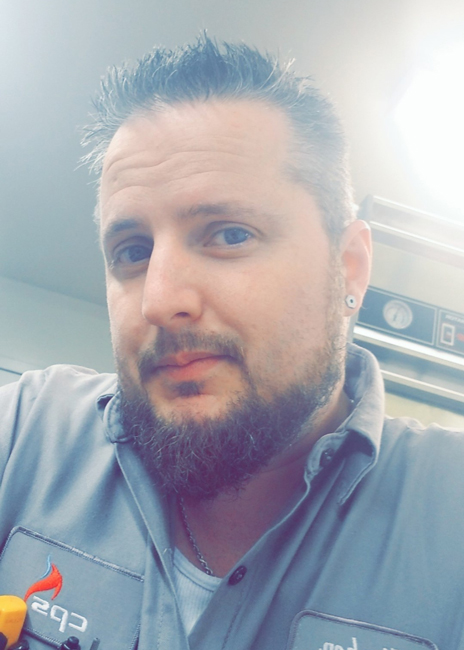Field Service Technician, Commercial Parts and Service
 Stephen CurdNineteen years ago, Stephen Curd had just graduated from high school and, like so many other people his age, he did not exactly know what his vocation would be. Curd’s father, Ken, was a veteran service technician for Commercial Parts and Service, an Ohio-based service agent with offices in Columbus and Cincinnati. “I knew I needed a job and went to talk to them,” Curd recalls. “They hired me, trained me, and I took over my dad’s position.” And the rest, as they say, is history.
Stephen CurdNineteen years ago, Stephen Curd had just graduated from high school and, like so many other people his age, he did not exactly know what his vocation would be. Curd’s father, Ken, was a veteran service technician for Commercial Parts and Service, an Ohio-based service agent with offices in Columbus and Cincinnati. “I knew I needed a job and went to talk to them,” Curd recalls. “They hired me, trained me, and I took over my dad’s position.” And the rest, as they say, is history.
Curd spent 16 years learning the ropes from his father. Curd also credits his supervisor, Steve Weigel, as being a positive influence in his career. “He encourages us to dig a little deeper and be creative,” he says.
And that describes Curd perfectly. Leveraging his lifelong love of learning, he pushed himself to earn master certified technician status from the Commercial Food Equipment Service Association. “That’s something the company loves,” Curd notes.
FE&S: You had the chance to work with your dad for 16 years. Please share one lesson he taught you.
A: You have to have patience. I lack it at times. He was a very calm, cool and collected individual. We would love to have the proper circumstance for every call. Often, though, you walk into a call and they have lost three essential pieces of equipment, and they can’t open their restaurant. You have to have the patience to understand where they are coming from. And you have to have the ability to get that equipment fixed regardless of whether it is under warranty. You have to have the patience to check the entire piece of equipment from front to back and understand everything that is going on before presenting it to the customer. And, by the time you’re done, you have to put a smile on their face. Everything I know, he passed on to me. I just wish I could learn everything he knew. My boss also encourages us to dig a little deeper and be creative.
FE&S: Along those lines, the pandemic continues to test everyone’s patience. How is COVID-19 affecting the way you work with your clients?
A: Every place has a different protocol and criteria you have to meet before you can enter their facility to begin your work. If it takes a couple minutes longer to get your temperature taken and answer a few questions, that’s what it takes. We have no choice but to adapt and remain vigilant to make people feel safe.
FE&S: You work in some high-profile places, including some military facilities with tight security. What’s it like going to work there?
A: Before we can even gain access to the facility, we go through a federal background check. If you respect their wishes, everything will go smoothly. Some of the facilities we go to on the base are high profile and high priority, and if we keep on the dotted line, things are good.




